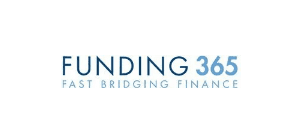
€26K to €250m
Funding options for property developers
Property finance for property people
We work with developers across the country to help them secure the finance they need to purchase and develop land and property.
Whether you're modernising an existing factory or office block to turn them into residential accommodation or you're building a brand new industrial estate from the ground up, our team of experienced financiers will help you find the funding you need.
We provide capital of between €26,000 up to €250m and support to borrowers throughout the duration of their projects from the planning stages right through to completion.
We work with over 100 different lenders so our team will find the right deal for you so that you can maximise return on your project.
Feel free to get in touch with us even if your project hasn't yet been awarded planning permission.
To get in touch with us, please click the Start Here button.
Finance for property developers
We're able to provide bridging loans and development loans at all stages including:
Light development finance
Light development loans are best for significant but mainly aesthetic changes to property - for example, a new central heating system, replacement windows, or a new bathroom or kitchen.
Heavy refurbishment finance
Heavy refurbishment loans are used when a property undergoes some form of structural work or there is a change of use (for example, from a warehouse or office to residential accommodation). Heavy refurbishment finance is also suitable for exempted or permitted developments, attic conversions, property extensions, partial demolitions and rebuilds, new electrics or plumbing, and the movement of internal walls.
Ground up development finance
Developers use ground up finance to fund the purchase of land and the project build cost.
In most cases, a finance company will provide up to 70% of the cost of the land and 100% of the cost of the build. However, most funders will not allow you to borrow more than 70% of the estimated future worth of your property following project completion.
Senior debt development finance
With senior debt, your lender takes a first charge over what is often a larger property development (for example, housing estates and student accommodation blocks) in exchange for lower interest rates. Although there are senior debt providers who will work with newer private sector developers with a strong track record of successful past performance, most prefer to work with experienced developers on these sizes of projects.
Stretched senior development finance
Stretched senior development loans are available for more experienced private sector developers whose deposit is lower than would be accepted on a standard property finance loan.
Super stretch senior development finance
Super stretch development finance allows developers to borrow up to 90% of the total costs of a development by combining a stretched senior loan with mezzanine funding from two different sources of funding.
Mezzanine development finance
Sometimes, the deposit you have for a project may not be as large as the deposit required by a development finance provider to start work. On these occasions, our team can find you a mezzanine funder to plug the gap. The mezzanine loan provider will need a second charge over the project before proceeding.
Development exit finance
In order to free up cash for other projects, some private sector development companies use development exit finance (a form of bridging loan). The exit finance is then repaid when the properties have been sold or you arrange a residential or commercial buy to let mortgage.
Build to let development finance
Build to let development have been a growing part of the Irish property scene for over a decade. Build to let developments are intended to provide rental income and therefore units are never sold to tenants or other third parties. A lender would expect you to arrange a residential multi-unit buy-to-let mortgage to repay the development loan.
Commercial development finance
We can help you secure funding for all commercial and semi-commercial property development projects even if you currently do not have a pre-let in place.
Ireland property development finance FAQ
How much finance is available for your project?
On all property development finance projects, you will be required to provide a deposit to be approved for a loan in the form of either cash or assets.
The way development finance providers determine how much they'll lend on a project depends on whether they use loan to value (LTV), loan to cost (LTC), or loan to gross development value (LTDGV) when assessing a proposal.
LTV refers to the value of the building, site, or land you're buying before you've spent any money on development.
LTC refers to how much a lender will advance you towards construction and other costs associated with your project.
LTGDV refers to what the lender believes the future worth of your property will be worth once you have completed development. Most of the lenders on our panel use LTDGV when assessing how much finance they'll give a developer access to on a project.
You can achieve 100% funding by providing security in the equity present in other properties or land you own. Please ask us for more information when you get in touch.
How and when does development financing need to be paid back?
You pay development funding back differently from the way you repay traditional mortgages and other types of secured loans.
With standard secured financing, you make a monthly repayment to the lender for an agreed amount for an agreed length of time.
With property development finance, it's different.
Development finance providers understand that funds are often tight during a construction project and that cash flow management is of particular importance.
Development projects also prone to cost overruns and delays. If the lender was to take monthly repayments, this would deplete your cash reserves increasing the small possibility that your project may run out of money.
Most lenders therefore charge interest during the term of the loan but you only pay the interest together with the capital (the amount you actually borrowed) when the project is completed. If you are interested in making monthly interest repayments, this option is available - please ask our team for more information when you get in touch.
On nearly all property finance loans, interest rates are static meaning that, if the European Central Bank raises the base rate, you won't pay any more.
Development loans are paid back when you have either:
- Sold the property you're developing or
- Arrange a residential or commercial buy-to-let mortgage on the property with a view to renting it out
Is property development finance expensive?
Property finance is more expensive than a traditional mortgage however mortgage lenders do not generally tend to offer funding options to:
- Purchase land
- Refurbish or renovate property or
- Develop property
Property development finance is riskier than mortgage lending meaning that most High Street banks either don't offer the service or their prices are too high because they don't specialise in offering this type of funding.
Often, developers get the best deals from non-bank lenders, alternative lenders, private investment funds, and family offices. You can connect direct with these specialist funders by working with us.
Can you work with developers with a bad credit history?
When applying for a standard commercial loan, one of the greatest challenges many entrepreneurs have to overcome is a bad credit rating.
Lenders are less concerned about company credit ratings on property finance deals because they have security over the land and property you're developing..
There has been much innovation in recent years in the development finance sector too so we encourage you to contact our team as the chances are that one or more of our lenders will be able to work with you.
Arrange property development finance with us
Contact our property development finance team to get access to our panel of over 100 established lenders.
























